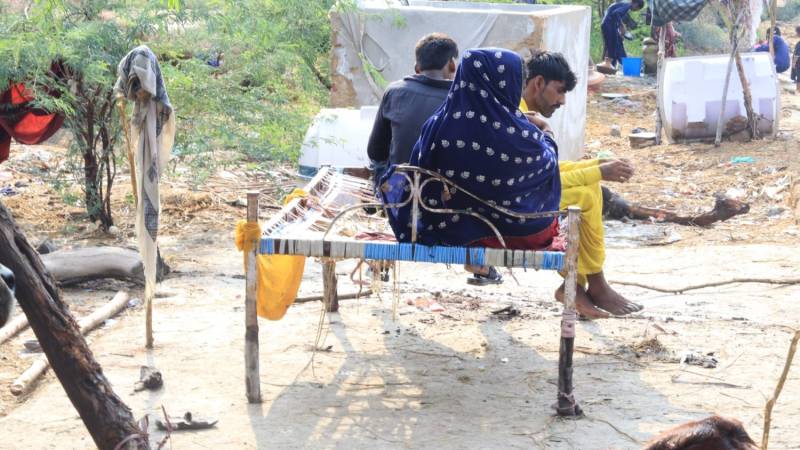
Near the delta-edge town of Jati in the Sujawal district of Sindh, a devastating reality has claimed another young life.
A 20-year-old mother, Husna, succumbed to birth-related complications, leaving behind a trail of sorrow and a stark reminder of the dangers of early marriage and inadequate healthcare.
Husna's story is a heart-wrenching testament to the struggles faced by countless young girls in Pakistan.
Married in her teens, she was pregnant. During her pregnancy, she was diagnosed with Hepatitis-B. Due to financial constraints, she could not pursue access to proper treatment. Desperate and unaware of the true nature of her disease, her family turned to a local spiritual healer and exorcist, who promised a cure. Her condition, though, only worsened.
Ultimately, Husna was rushed to the government-run hospital in Sujawal, where she gave birth. However, owing to complications and her poor health, her child was stillborn.
After giving birth, Husna's health deteriorated rapidly. Despite the efforts of the doctors, she couldn't survive. Doctors listed the cause of her death as postpartum haemorrhage and related complications.
Husna's tragic fate, however, is a symptom of a larger issue. Dr Beena Khowaja, a gynaecologist, emphasised that under and early-age marriages are dangerous for both the mother and the child.
"A teenage mother lacks the capacity to sustain a healthy child in her womb," she warned, highlighting that teenage mothers often develop complications that prove harmful for both the mother and the child.
Dr Kousar Karimi notes that in Sujawal and surrounding areas, malnourishment is a significant factor contributing to the poor health of mothers. Dr Karimi stated that malnourishment was particularly a concern in urban areas, contributing to higher-than-average maternal mortality during pregnancy. Moreover, Dr Karimi said underprivileged mothers remain unaware of essential antenatal and postnatal care in their area.
The United Nations International Children's Emergency Fund (UNICEF), in collaboration with local government departments, has been working to educate mothers in the region, but low literacy rates and a lack of cooperation have hindered progress. Dr Heema, a woman medical officer at the Civil Hospital in Sujawal, acknowledged the challenges but expressed her commitment to effecting change.
Husna's story serves as a poignant reminder of the urgent need for action that addresses the root causes of maternal mortality, ensuring access to quality healthcare, education, and awareness.

